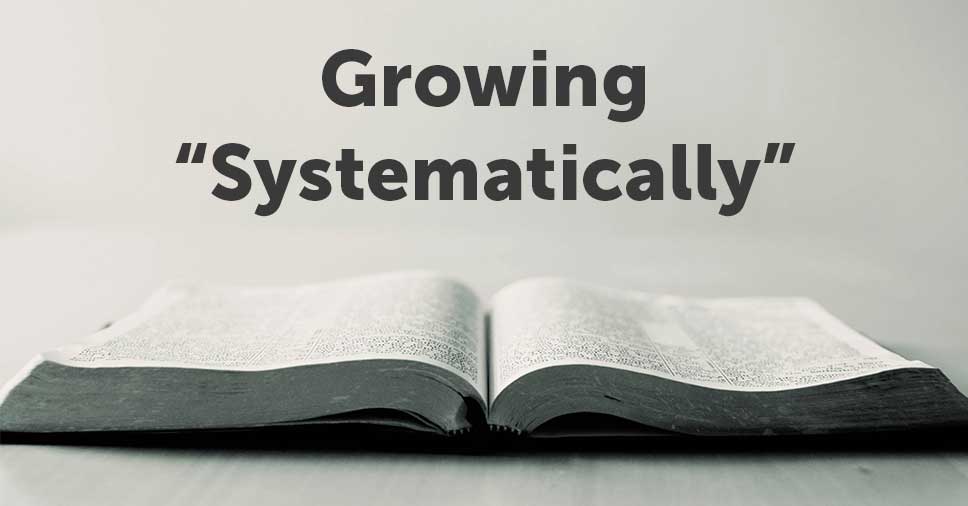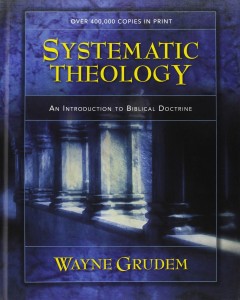
There are many ways we grow in our Christian faith and one of the most significant ways we do this is through the thoughtful reading of good books—often beginning with the Scriptures. Not only are the Scriptures the very words of God, true and authoritative in every way, they go beyond giving us just an intellectual knowledge of God to bringing us into a relationship with Him through His Son. This work is supernatural and transformational. Because of this fact, many believers make an effort to read their Bibles daily. Few, however, expand beyond this to other Christian literature. Over the past two decades of ministry I have become more and more convinced that the study of other literature is an invaluable resource. In this post I want to talk about the benefits of studying “systematic theology.”
 To quote Wayne Grudem, “Systematic theology is any study that answers the question, ‘What does the whole Bible teach us today?’ about any given topic.” The reason it is so beneficial is that it helps us answer our questions by looking at the whole of scripture. So where should we start? In the past, I have somewhat hesitated to recommend some of the best volumes to the average reader because they can tend to be a bit heavy and academic. A number of years ago, however, I came upon Wayne Grudem’s Systematic Theology and was thrilled with what I found. Not only has his work become a personal favorite of mine, it is what I recommend to every Christian—whether young or mature in the faith. I am reading it now again for the fourth time.
To quote Wayne Grudem, “Systematic theology is any study that answers the question, ‘What does the whole Bible teach us today?’ about any given topic.” The reason it is so beneficial is that it helps us answer our questions by looking at the whole of scripture. So where should we start? In the past, I have somewhat hesitated to recommend some of the best volumes to the average reader because they can tend to be a bit heavy and academic. A number of years ago, however, I came upon Wayne Grudem’s Systematic Theology and was thrilled with what I found. Not only has his work become a personal favorite of mine, it is what I recommend to every Christian—whether young or mature in the faith. I am reading it now again for the fourth time.
Here are a few of the reasons I recommend the book:
- Grudem is faithful to the text of Scripture and uses it to support his points.
- He uses language that is clear and understandable to the average person without giving up the richness of theological terms.
- He is practical. He brings the teaching to where we live and makes helpful application.
- He writes with both humility and conviction (a rare blend today).
- He informs his readers of the differing views. He does this with respect and not a condescending rhetoric.
- Each chapter ends with “Questions for Personal Application.” These are also helpful for group discussions.
- He has an expanded bibliography at the end of each chapter which can direct reading from different viewpoints (i.e.. Anglican, Arminian / Methodist,Baptist, Dispensational, Lutheran, Reformed / Presbyterian, Charismatic / Pentecostal, Roman Catholic, etc.
- He recommends verses to memorize at the end of each chapter.
- He also references a historic hymn at the end of each chapter (coinciding with the doctrine covered).
This is a reference book, but it is more than a reference book. It is the kind of work that you can read devotionally—a little each day if your prefer. A shorter version written by Grudem and his son, Elliot, can be used in group studies, Christian Beliefs: Twenty Basics Every Christian Should Know.
Either of these books will help you as you study God’s Word and explore’s its teaching. We love to live in the “practical,” but everything we do in life will find its way back to what we believe or don’t believe about God. Our view of God is the ground upon which we stand, the security in which we rest, and the future to which we hope.